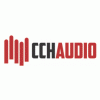Can you personally detect any difference between these four sound effects?
They are all recording a glass of water being poured into another glass, then the two glasses being tapped together, and then the glass getting flicked with a finger. However, they are unfortunately recordings of different occurrences of those events - they weren't all recording at the same time. Note: A computer is humming in the background.
(Try not to look at the sound URLs, as they contains spoilers ![]() )
)
Listen to the sounds before reading the below, please. ![]()
============================================
I was reading this thread, and I didn't want to derail the thread off of Promit's questions, but I had some questions of my own.
GroovyOne was the one who recorded and posted those sound effects in this post. I didn't want to link to the post until after you had a chance to listen to them though. Obviously this isn't a very good blind test, but it's something at least. If someone is ambiguous about whether they can hear the differences or not, then, for the average consumer, it shouldn't matter too much - how well the sound effect fits into the game with the rest of the sounds might matter more than the quality of the mic used to record it, maybe. Though obviously, every little bit of added quality helps, what I'm wanting to know is, with diminishing returns, does a more expensive microphone improve the quality of the sound significantly, or is it a way to eek out an extra tiny step of improvement on top of everything else?
Here's the actual mics used:
[spoiler]Sound A - Sennheiser MKH-60
Sound B - DPA-4011
Sound C - Sony PCM-D50 stereo
Sound D - Rode-NT3[/spoiler]
I'm not much of an audio-lover (I listen to music almost exclusively as background noise, though sometimes I listen to it for the music itself); I can't notice any change in quality between those four recordings, though the Sony PCM-D50 sounds quieter. I'm just playing it over the generic standalone speakers Dell sent with my old computer, glued upside-down to the bottom of a shelf behind my monitor (incase being upside-down matters) - I'm not noticing any significant difference except for the differences that occur as a result of not recording the exact same event.
Since I don't know what any of those actually are (except I knew what he meant by a portable recorder), or their prices, this was basically a (clumsy) blind sound test for me and they might as well have been labeled A, B, and C. They all sound fine, but if I had to choose one that sounds "the best", I think the Rode-NT3 sounds just a tiny bit "fuller" in breadth of details it's picking up - but that might just be my imagination. I can't decide whether it's a good "fuller" or not either (i.e. whether I prefer it over the others or not).
I can't notice any significant difference in quality between the "Sennheiser MKH-60" and the "DPA-4011". I can't tell the difference between those and the Sony PCM-D50 either, once I double the speaker volume when playing the Sony sound effect, so they are at roughly equal volume.
Me not noticing the differences may be because the low volume I normally listen at cuts out some of the finer detail - I can't hear the computer humming at all in any of those recordings, until I turn up the speaker to 3x the normal volume I listen at. I suppose that's one thing to consider - I'm sure plenty of consumers probably blare their volumes loudly.
When listening to them with the headphones I normally use (a cheap $10 Gumy headphone), I can't notice any quality difference between all four.
As someone who was planning to buy one of the Zoom portables to record sound effects for my own game, I'd like to know... can the average consumer (or even slightly-above average) tell the difference in quality between those four above microphones? Do you have to have better speakers or $300 headphones to notice the difference?
If you can notice the difference, does it make the others sound terrible in comparison? Would you be annoyed at the audio of a game if it included sounds recorded by one of the lesser microphones?








